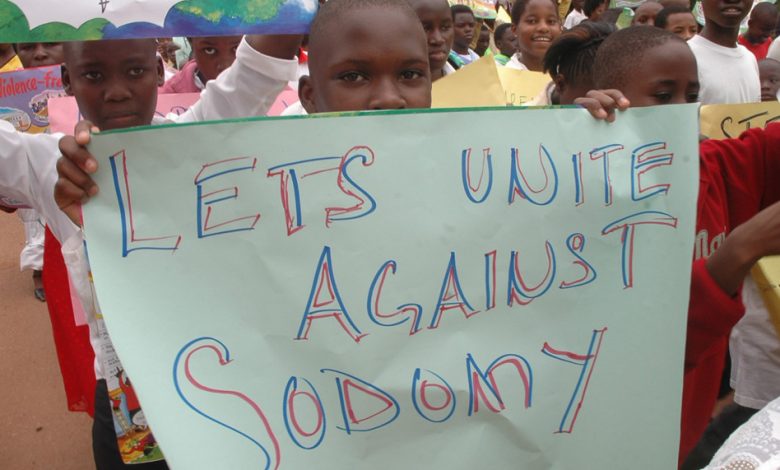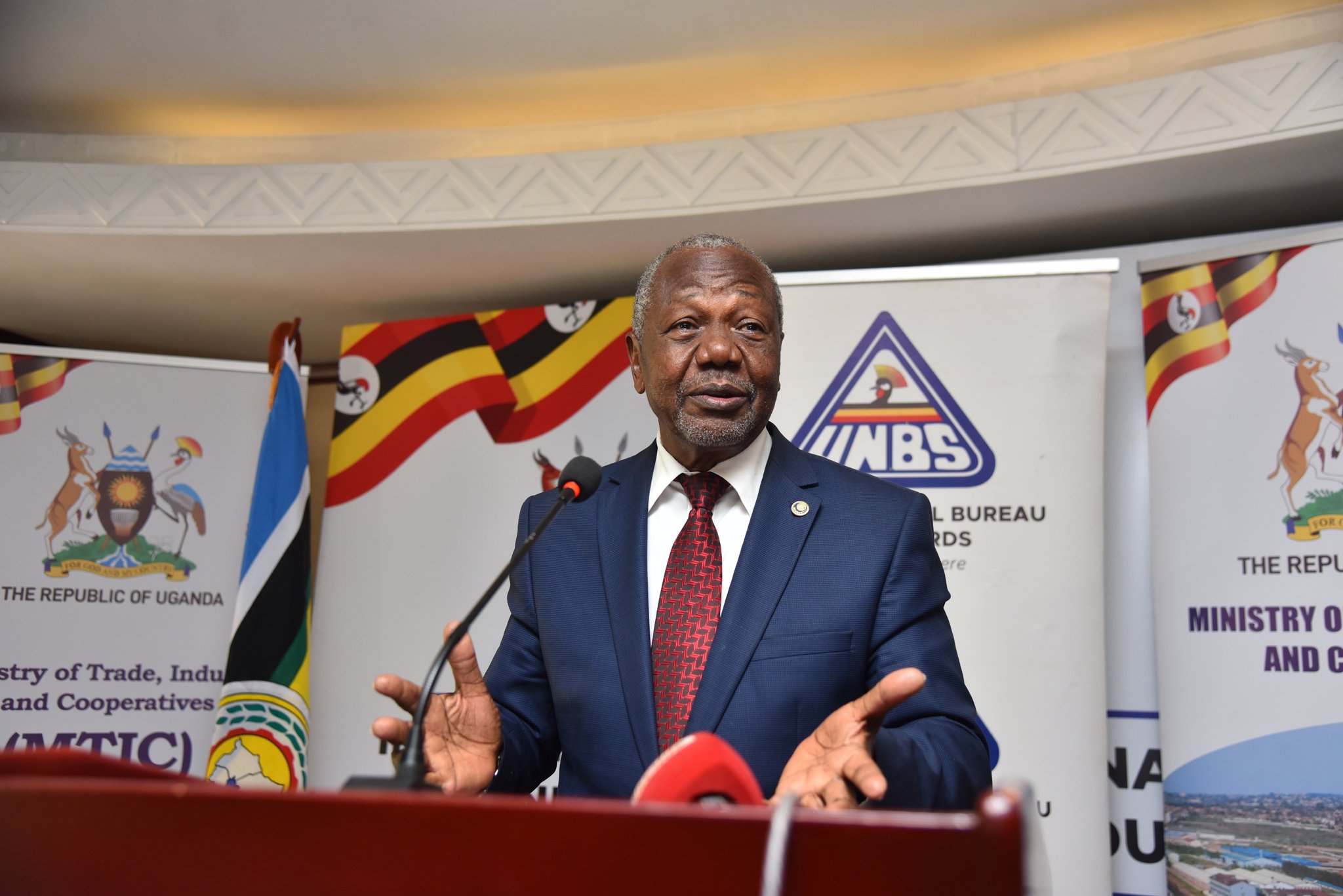Penalties the US has meted on Uganda since passing Anti-Homosexuality Act
Uganda bears responsibility for the passage and enactment of the AHA, and the impact that the law is having on Ugandans' access to health care, investment, tourism revenue, and other opportunities, the US said.

In May 2023, President Yoweri Museveni signed the Anti-Homosexuality Bill, 2023 into law following improvements adopted to make it tougher for people engaging in LGBQT activities.
Amidst threats for sanctions, Parliament modified the bill on May 2 after its initial March 21 draft sparked international condemnation for targeting people identifying as LGBQT.
Consequently, Museveni’s April 20 proposal for a review of the legislation aimed to improve the law to instead punish same-sex actors and its promoters amongst minors in the hardline socially conservative East African nation.
While Odrek Rwabwogo, the Senior Presidential Advisor on Trade, was in the US to advocate against Uganda’s expulsion from AGOA, the White House issued a Fact Sheet detailing penalties imposed on Uganda upon signing the Anti-Homosexuality Act 2023.
“As directed by President Biden, the United States has undertaken a review of the implications of the AHA on all aspects of U.S. engagement with the Government of Uganda and is taking actions to raise awareness of the threats posed by democratic backsliding in Uganda, promote accountability for human rights abuses, and curtail direct assistance to the government,” read in parts.
Actions taken by the US government
- Restricting entry to the United States– On December 4, Secretary of State Blinken announced the expansion of the visa restriction policy under section 212(a)(3)(C) of the Immigration and Nationality Act related to Uganda to include current or former Ugandan officials or others who are believed to be responsible for, or complicit in, undermining the democratic process in Uganda or for policies or actions aimed at repressing members of marginalized or vulnerable populations.
These groups include, but are not limited to, environmental activists, human rights defenders, journalists, LGBTQI+ persons, and civil society organizers.
- Sanctions– On December 8, the Department of the Treasury’s Office of Foreign Assets Control designated Johnson Byabashaija for being a foreign person who is or has been a leader or official of an entity, including any government entity, that has engaged in, or whose members have engaged in, serious human rights abuse relating to the leader’s or official’s tenure pursuant to Executive Order 13818, which builds upon and implements the Global Magnitsky Human Rights Accountability Act and targets perpetrators of serious human rights abuse and corruption around the world.
Byabashaija has served as the Commissioner General of the Uganda Prisons Service (UPS) since 2005. During that period, members of the UPS have engaged in torture and other cruel, inhuman or degrading treatment or punishment against prisoners held within UPS facilities.
- Ending eligibility for the African Growth and Opportunity Act– The U.S. Trade Representative informed the Government of Uganda that they will lose eligibility for the African Growth and Opportunity Act benefits on January 1, 2024 due to gross violations of internationally recognized human rights unless they publicly release an action plan for addressing human rights concerns and repeal the AHA.
- Reducing support to the Government of Uganda– We are curtailing direct government-to-government funding to programs implemented with Uganda. This includes new restrictions and redirections of impacted assistance, including through the Department of Defense and the President’s Emergency Plan for AIDS Relief (PEPFAR).
The Department of Defense is pausing approximately $15 million for all biological threat reductions activities with the Ugandan Ministries of Health, Agriculture, and Tourism, and will continue to review U.S. government-funded security assistance and military cooperation activities.
The U.S. Government also will redirect more than $5 million through PEPFAR from the Government of Uganda to non-governmental implementing partners due to concerns over how the AHA impacts the Government of Uganda’s ability to deliver services in a non-discriminatory manner. These actions are not intended to negatively impact HIV/AIDS service delivery to key populations.
- Issuing business advisory– The Departments of State, Commerce, Labor, and Health and Human Services and the U.S. Agency for International Development (USAID) released a business advisory on October 23, 2023 to highlight heightened risks for U.S. businesses, individuals, and other persons, including health service providers, members of academic institutions, and investors conducting or contemplating conducting business in Uganda.
- Issuing travel advisory– The Department of State released a travel advisory on June 12 and updated its travel guidance to U.S. citizens to highlight the risk that LGBTQI+ persons, those perceived to be LGBTQI+, and those who advocate for the human rights of LGBTQI+ persons could be prosecuted and subjected to imprisonment if they travel to Uganda.
- Advocating for implementation of social safeguards in World Bank lending– The United States has supported World Bank actions to require additional measures to promote equal access to the benefits of Bank-supported projects in Uganda and protections for vulnerable groups including the LGBTQI+ community, in line with the World Bank Environmental and Social Framework.
This includes a pause in new public financing for Uganda while additional measures are negotiated and implemented, and the efficacy of the additional measures is tested.
The Government of Uganda bears responsibility for the passage and enactment of the AHA, and the impact that the law is having on Ugandans’ access to health care, investment, tourism revenue, and other opportunities, the US said.
“We are also concerned about persistent human rights abuses, including torture and other cruel, inhuman or degrading treatment or punishment, deteriorating media freedom, and crackdowns on civic and political space,” it added.
The United States, however, is committed to and will continue to provide assistance that directly supports Ugandan people and communities. In particular:
- Continuing humanitarian and development assistance programs– The U.S. Government is continuing its significant humanitarian and development assistance that directly supports the most vulnerable communities without discrimination.
This includes funding for the refugee response through international organizations and non-governmental organizations as well as the majority of PEPFAR to ensure Ugandans who rely on the program’s life-saving services will continue to receive them and that civil society organizations providing these services can continue to deliver.
This assistance supports HIV prevention and treatment services, community health systems, testing and laboratory support, essential medicines, and health workers.
- Mobilizing private sector capital for sustainable development– The U.S. Government, through its various agencies, will continue to seek to mobilize and increase private capital to support businesses, including those owned or led by women entrepreneurs and other underserved groups, in a manner consistent with international standards of non-discrimination and as long as project risks posed by the AHA can be adequately addressed on a case-by-case basis.
- Providing support to victims of AHA– Through various rapid response emergency mechanisms, the Department of State and USAID have increased emergency assistance to LGBTQI+ Uganda human rights defenders and organizations whose safety and security are at risk.
Emergency response may include assistance for those who are victims of violence, evicted from their homes, or who need help accessing medical care. It also includes support for legal representation if individuals are unjustly arrested.
According to the White House, the United States remains committed to serving all people of Uganda without discrimination. The US commits itself to continue monitoring U.S. program implementation and assistance to ensure that there is zero tolerance for any form of discrimination or harmful activities, including the horrific practice of forced anal examinations and will take immediate and appropriate action as needed.
Additionally, the white house stated that they will continuously monitor the human rights situation in Uganda, raise concerns at every level with the Ugandan Government, and take additional steps to promote respect for human rights and accountability.







